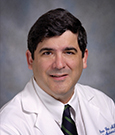The Massachusetts Society of Clinical Oncologists (MSCO) is among the oldest and largest of ASCO’s State Affiliates. Based in the same building as the Massachusetts Medical Society in Waltham, MSCO was founded in 1985 and has a growing membership of 160 members, including medical, surgical, and radiation oncologists as well as oncology fellows.
Among the most politically active societies, MSCO realized two major victories last year. One was passage of the state’s oral chemotherapy parity law, an effort that took more than 2 years to accomplish. The second success was the negotiation with a major insurance carrier to include payment for evaluation and management services when provided on the same day as drug infusion services.
Currently, MSCO is negotiating with Medicare and a local insurance carrier to update their policy regarding the use of antiemetics in oncology so they conform to ASCO and National Comprehensive Cancer Network (NCCN) guidelines.
The ASCO Post talked with MSCO’s President, Omar Eton, MD, about the importance of being an ASCO State Affiliate and the Society’s future goals.
More Effective Care Delivery
Why is it important for MSCO to be an ASCO State Affiliate?
It is our obligation as oncologists to provide cancer patients with the most effective treatment and support; deliver care in a coordinated, cost-effective manner; and provide new solutions to improve treatment and care. While local societies have worked on delivery of care within state-specific parameters, this work has been fragmented and redundant across states. The result is a misalignment between regulations and effective delivery of care.
Rather than focusing on the medical care of their patients, oncologists spend inordinate amounts of time logging in billing code data that is not central to patients’ needs. With increasingly limited resources, oncologists are functioning more and more as technicians and need to take back their leadership role as effective captains of their team.
Oncologists are looking to ASCO to establish best practices culled from across the country, and ASCO is responding by providing the latest tools for oncologists to ensure and measure quality, to provide the best value in each patient’s care.
State societies and ASCO are working more closely than ever to generate clear messages so we can exercise sufficient clout on a local and national level to influence health-care policy. Unless we represent ourselves effectively, we will continue to experience imposed restrictions by business people and lawmakers.
Two years ago, ASCO created the State Affiliate Council, which meets in person twice a year to discuss important legislative and practice-changing matters. Since then, members have begun sharing information between meetings electronically, allowing professionals to hone their messages with regional and national officials.
Access to Multispecialty Services
Many State Affiliates are concerned about private oncology practices being sold to large health-care organizations. Is that an issue in Massachusetts?
Private oncology practices are becoming a rarity in Massachusetts, potentially resulting in access issues for patients who have to travel long distances for care. While navigator programs are succeeding in managing this vulnerability, long distance commuting remains disruptive and risky for patients who are undergoing treatment with even the most routine regimens that have toxicities. Tighter coordination of care is now vital to avoid a spike in unnecessary hospitalizations.
On the other hand, as practices are sold to hospital groups, there are economies of scale and patients are gaining access to expeditious multispecialty services, often conveniently housed in one place. This is an important development, given the increasingly multidisciplinary care patients now require.
Key Goals
MSCO has had several significant accomplishments in 2013. What are your future goals?
In today’s medical environment, it is important to have a place where people from all fields, including oncology, pharmaceutical, health insurance, and government, can meet to discuss issues, such as new legislation, third-party reimbursement, and barriers to quality patient care, and that’s what we provide. MSCO members meet monthly and we also sponsor corporate roundtables and annual meetings.
We also keep members informed on the latest developments affecting patient care through electronic communications, and we are building our website to include the latest disease-specific presentations by oncology experts in various specialties.
We seek to develop the next generation of leaders in oncology by providing a venue for inter-institutional dialogue resulting in enhanced situational awareness, and by sponsoring poster sessions for trainees. If we continue to grow, we envision supporting grants to find better ways to deliver oncology care and to help practices manage newly mandated quality initiatives.
Our most important goal is to protect patients from the unintended consequences of regulation and rationing of care that are deleterious to patient outcome. We also want to reduce barriers that have been pervasively impeding clinical development, while increasing opportunities for greater participation in clinical trials that advance the personalized treatment of cancer and improve the delivery of care.
These are our primary goals, but we also want to increase our constructive collaboration with the key stakeholders in health care. As the population ages there will be increasing numbers of patients with cancer who will need high-quality and personalized care. The Patient Protection and Affordable Care Act has firmly set the patient at the center of gravity, finally facilitating better collaboration among providers, insurance companies, regulators, and patients.
We are hopeful that over the next 4 or 5 years, oncologists and their patients will be in a better place. With some patience and better engagement, we have faith that we can accomplish the ultimate goal of producing better and more cost-effective oncology care. ■


